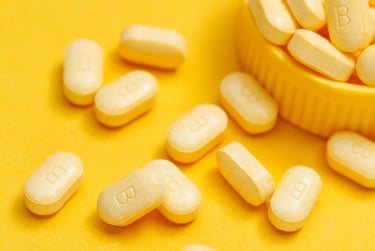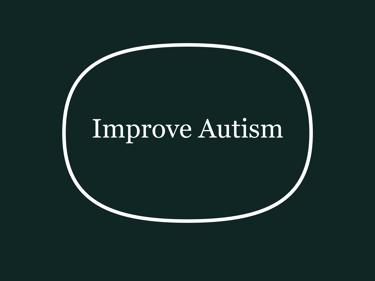Folinic acid and Autism Research
Folinic acid improves verbal communication in children with autism and language impairment: a randomized double-blind placebo-controlled trial
Authors:
Frye, R.E., Slattery, J., Delhey, L., Furgerson, B., Strickland, T., Tippett, M., Sailey, A., Wynne, R., Rose, S., Melnyk, S. and Jill James, S.
Research study
Year
Type
Study size
Abstract
LINK/DOI
We sought to determine whether high-dose folinic acid improves verbal communication in children with non-syndromic autism spectrum disorder (ASD) and language impairment in a double-blind placebo control setting. Forty-eight children (mean age 7 years 4 months; 82% male) with ASD and language impairment were randomized to receive 12 weeks of high-dose folinic acid (2 mg kg-1 per day, maximum 50 mg per day; n=23) or placebo (n=25). Children were subtyped by glutathione and folate receptor-α autoantibody (FRAA) status. Improvement in verbal communication, as measured by a ability-appropriate standardized instrument, was significantly greater in participants receiving folinic acid as compared with those receiving placebo, resulting in an effect of 5.7 (1.0,10.4) standardized points with a medium-to-large effect size (Cohen's d=0.70). FRAA status was predictive of response to treatment. For FRAA-positive participants, improvement in verbal communication was significantly greater in those receiving folinic acid as compared with those receiving placebo, resulting in an effect of 7.3 (1.4,13.2) standardized points with a large effect size (Cohen's d=0.91), indicating that folinic acid treatment may be more efficacious in children with ASD who are FRAA positive. Improvements in subscales of the Vineland Adaptive Behavior Scale, the Aberrant Behavior Checklist, the Autism Symptom Questionnaire and the Behavioral Assessment System for Children were significantly greater in the folinic acid group as compared with the placebo group. There was no significant difference in adverse effects between treatment groups. Thus, in this small trial of children with non-syndromic ASD and language impairment, treatment with high-dose folinic acid for 12 weeks resulted in improvement in verbal communication as compared with placebo, particularly in those participants who were positive for FRAAs.
48
Randomise controlled
2018
doi: 10.1038/mp.2016.168


Cerebral Folate Deficiency, Folate Receptor Alpha Autoantibodies and Leucovorin (Folinic Acid) Treatment in Autism Spectrum Disorders: A Systematic Review and Meta-Analysis
Authors:
Rossignol, D.A. and Frye, R.E.
Research study
Year
Type
Study size
Abstract
LINK/DOI
The cerebral folate receptor alpha (FRα) transports 5-methyltetrahydrofolate (5-MTHF) into the brain; low 5-MTHF in the brain causes cerebral folate deficiency (CFD). CFD has been associated with autism spectrum disorders (ASD) and is treated with d,l-leucovorin (folinic acid). One cause of CFD is an autoantibody that interferes with the function of the FRα. FRα autoantibodies (FRAAs) have been reported in ASD. A systematic review was performed to identify studies reporting FRAAs in association with ASD, or the use of d,l-leucovorin in the treatment of ASD. A meta-analysis examined the prevalence of FRAAs in ASD. The pooled prevalence of ASD in individuals with CFD was 44%, while the pooled prevalence of CFD in ASD was 38% (with a significant variation across studies due to heterogeneity). The etiology of CFD in ASD was attributed to FRAAs in 83% of the cases (with consistency across studies) and mitochondrial dysfunction in 43%. A significant inverse correlation was found between higher FRAA serum titers and lower 5-MTHF CSF concentrations in two studies. The prevalence of FRAA in ASD was 71% without significant variation across studies. Children with ASD were 19.03-fold more likely to be positive for a FRAA compared to typically developing children without an ASD sibling. For individuals with ASD and CFD, meta-analysis also found improvements with d,l-leucovorin in overall ASD symptoms (67%), irritability (58%), ataxia (88%), pyramidal signs (76%), movement disorders (47%), and epilepsy (75%). Twenty-one studies (including four placebo-controlled and three prospective, controlled) treated individuals with ASD using d,l-leucovorin. d,l-Leucovorin was found to significantly improve communication with medium-to-large effect sizes and have a positive effect on core ASD symptoms and associated behaviors (attention and stereotypy) in individual studies with large effect sizes. Significant adverse effects across studies were generally mild but the most common were aggression (9.5%), excitement or agitation (11.7%), headache (4.9%), insomnia (8.5%), and increased tantrums (6.2%). Taken together, d,l-leucovorin is associated with improvements in core and associated symptoms of ASD and appears safe and generally well-tolerated, with the strongest evidence coming from the blinded, placebo-controlled studies. Further studies would be helpful to confirm and expand on these findings.
48
Review
2021
doi: 10.3390/jpm11111141
Folinic acid improves the score of Autism in the EFFET placebo-controlled randomized trial
Authors:
Renard, E., Leheup, B., Gueant-Rodriguez, R.M., Oussalah, A., Quadros, E.V. and Guéant, J.L.
Research study
Year
Type
Study size
Abstract
LINK/DOI
Autism spectrum disorders (ASD) are influenced by interacting maternal and environmental risk factors. High-dose folinic acid has shown improvement in verbal communication in ASD children. The EFFET randomized placebo-controlled trial 9(NCT02551830) aimed to evaluate the efficacy of folinic acid (FOLINORAL®) at a lower dose of 5 mg twice daily. Nineteen children were included in the EFFET trial. The primary efficacy outcome was improvement of Autism Diagnostic Observation Schedule (ADOS) score. The secondary outcomes were the improvement in ADOS sub scores communication, social interactions, Social Responsiveness Score (SRS) and treatment safety. The global ADOS score and social interaction and communication sub scores were significantly improved at week 12 compared to baseline in the folinic acid group (P = 0.003, P = 0.004 and P = 0.022, respectively), but not in the placebo group (P = 0.574, P = 0.780, P = 0.269, respectively). We observed a greater change of ADOS global score (-2.78 vs. -0.4 points) and (-1.78 vs. 0.20 points) in the folinic acid group, compared to the placebo group. No serious adverse events were observed. This pilot study showed significant efficacy of folinic acid with an oral formulation that is readily available. It opens a perspective of therapeutic intervention with folinic acid but needs to be confirmed by a multi-center trial on a larger number of children.
19
Placebo controlled trial
2020
doi: 10.1016/j.biochi.2020.04.019
Efficacy of oral folinic acid supplementation in children with autism spectrum disorder: a randomized double-blind, placebo-controlled trial
Authors:
Panda, P.K., Sharawat, I.K., Saha, S., Gupta, D., Palayullakandi, A. and Meena, K.
Research study
Year
Type
Study size
Abstract
LINK/DOI
Oral folinic acid has shown potential to improve symptoms in children with autism spectrum disorder (ASD). However, randomized controlled trials (RCTs) are limited. This double-blind, placebo-controlled RCT aimed to compare changes in Childhood Autism Rating Scale (CARS) scores in children with ASD aged 2-10 years, among folinic acid (2 mg/kg/day, maximum of 50 mg/day) and placebo groups at 24 weeks, in comparison with baseline. Both the groups received standard care (ABA and sensory integration therapy). Secondary objectives included changes in behavioral problems measured by the Child Behavior Checklist (CBCL) and serum levels of anti-folate receptor autoantibodies and folic acid, correlated with changes in autism symptom severity. Out of the 40 participants recruited in each group, 39 and 38 participants completed the 24-week follow-up in the folinic acid and placebo groups, respectively. The change in CARS score was higher in the folinic acid group (3.6 ± 0.8) compared to the placebo group (2.4 ± 0.7, p < 0.001). Changes in CBCL total score and CBCL internalizing score were also better in the folinic acid group (19.7 ± 9.5 vs. 12.6 ± 8.4 and 15.4 ± 7.8 vs. 8.5 ± 5.7, p < 0.001 for both). High-titer anti-folate receptor autoantibodies were positive in 32/40 and 33/40 cases in the folinic acid and placebo groups, respectively (p = 0.78). In the placebo group, improvement in CARS score was comparable regardless of autoantibody status (p = 0.11), but in the folinic acid group, improvement was more pronounced in the high-titer autoantibody group (p = 0.03). No adverse reactions were reported in either group.
Conclusions: Oral folinic acid supplementation is effective and safe in improving ASD symptoms, with more pronounced benefits in children with high titers of folate receptor autoantibodies.
80
Randomised double blind placebo controlled trial
2024
doi: 10.1007/s00431-024-05762-6
Folinic Acid as Adjunctive Therapy in Treatment of Inappropriate Speech in Children with Autism: A Double-Blind and PlaceboControlled Randomized Trial
Authors:
Batebi, N., Moghaddam, H.S., Hasanzadeh, A., Fakour, Y., Mohammadi, M.R. and Akhondzadeh, S.
Research study
Year
Type
Study size
Abstract
LINK/DOI
[5]
This is a double-blind, placebo-controlled randomized trial to investigate the potential therapeutic effects of folinic acid/placebo as an adjuvant to risperidone on inappropriate speech and other behavioral symptoms of autism spectrum disorder (ASD). Fifty-five ASD children (age (mean ± standard deviation) = 13.40 ± 2.00; male/female: 35/20) were evaluated for behavioral symptoms at baseline, week 5, and week 10 using the aberrant behavior checklist-community (ABC-C). Folinic acid dosage was 2 mg/kg up to 50 mg per day for the entire course of the study. The repeated measures analysis showed significant effect for time × treatment interaction on inappropriate speech (F = 3.51; df = 1.61; P = 0.044), stereotypic behavior (F = 4.02; df = 1.37; P = 0.036), and hyperactivity/noncompliance (F = 6.79; df = 1.66; P = 0.003) subscale scores. In contrast, no significant effect for time × treatment interaction was found on lethargy/social withdrawal (F = 1.06; df = 1.57; P = 0.336) and irritability (F = 2.86; df = 1.91; P = 0.064) subscale scores. Our study provided preliminary evidence suggesting that folinic acid could be recommended as a beneficial complementary supplement for alleviating speech and behavioral symptoms in children with ASD.
55
Double blind and placebo controlled trial
2021
doi: 10.1007/s10578-020-01072-8


